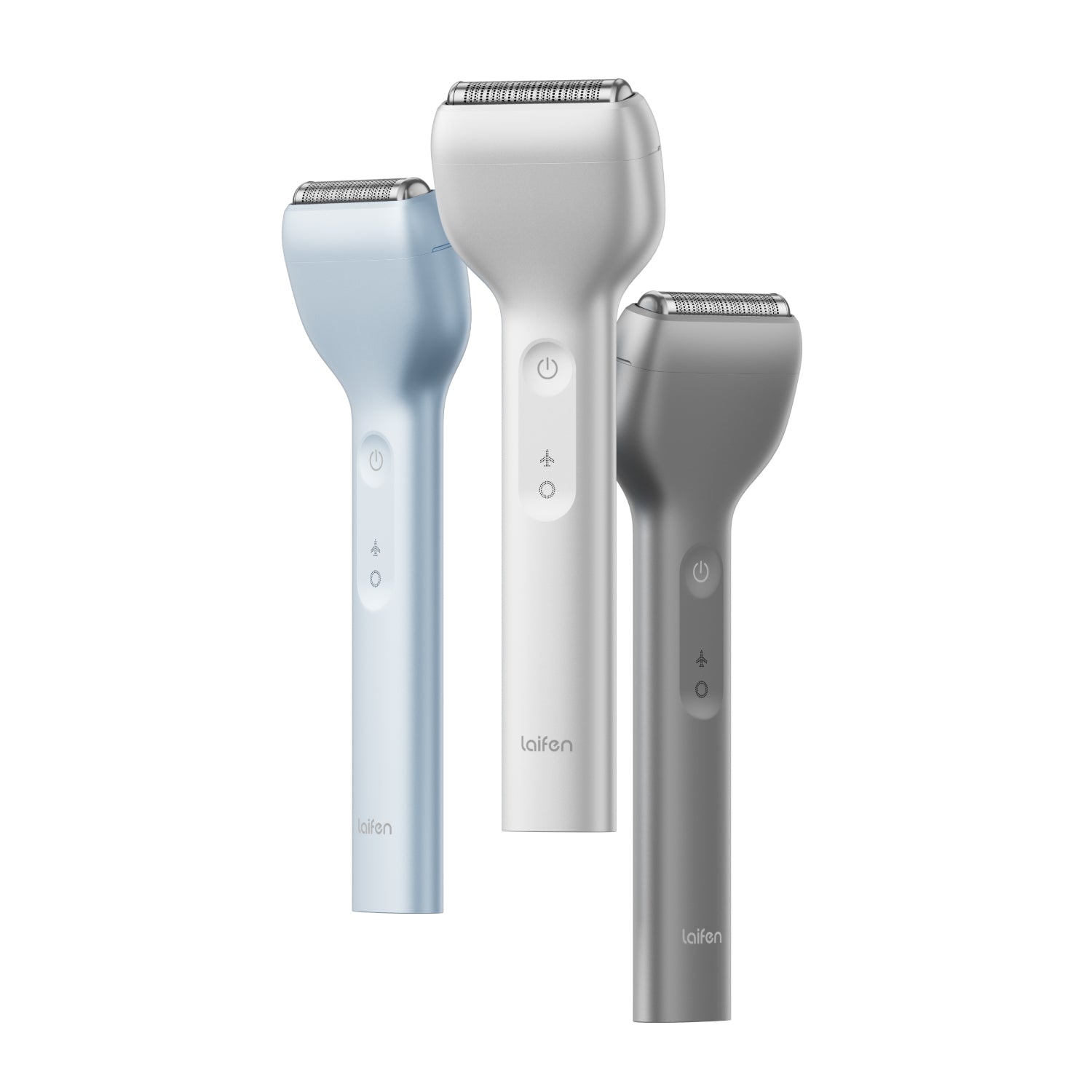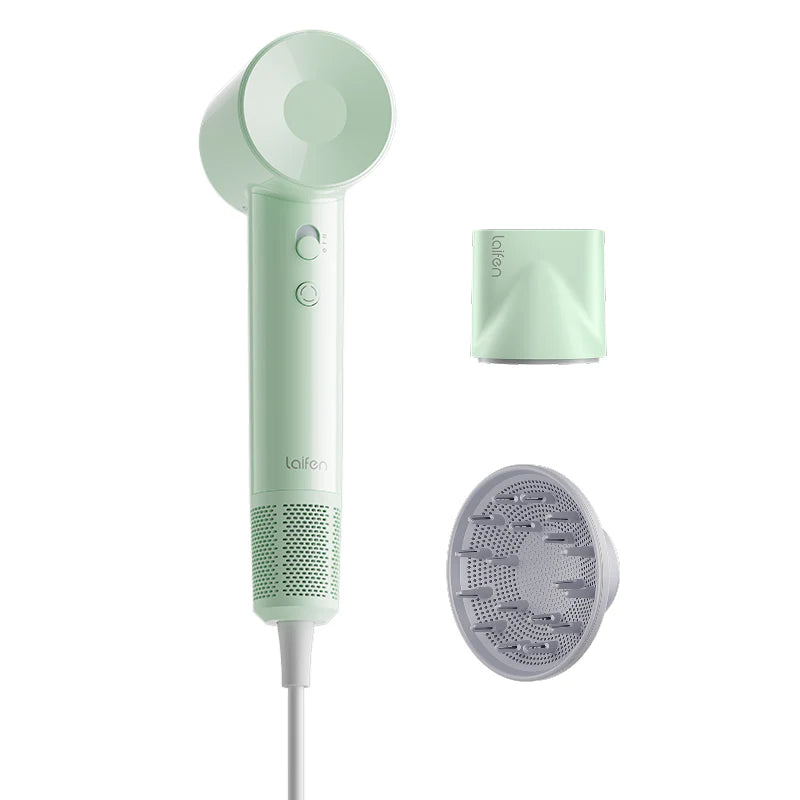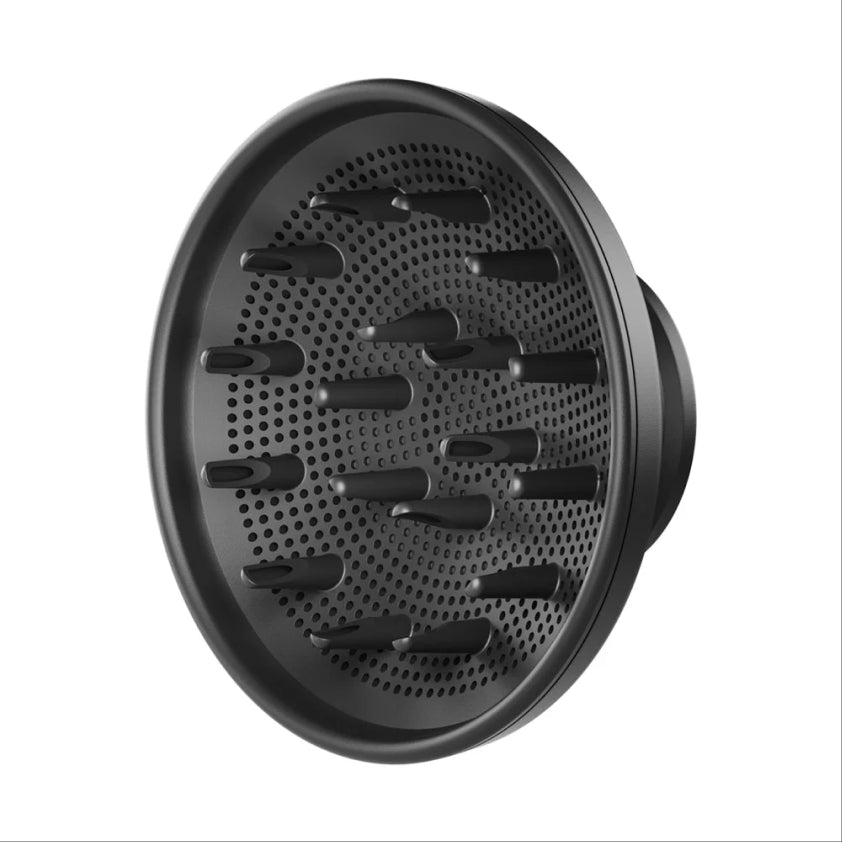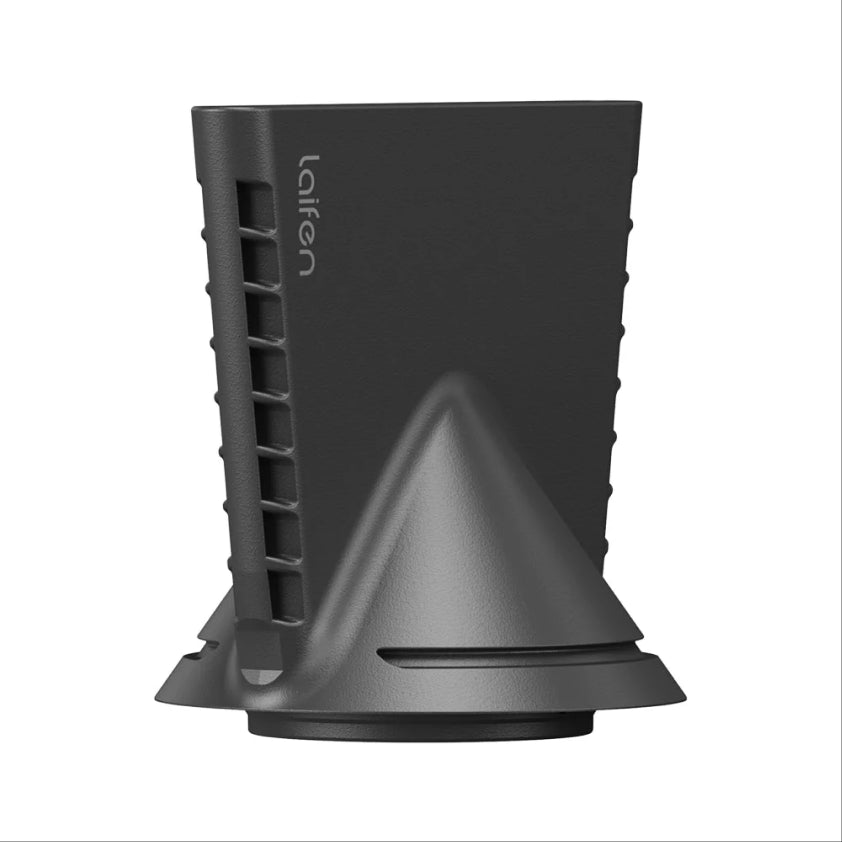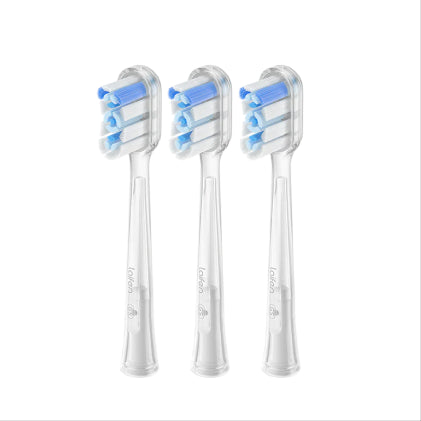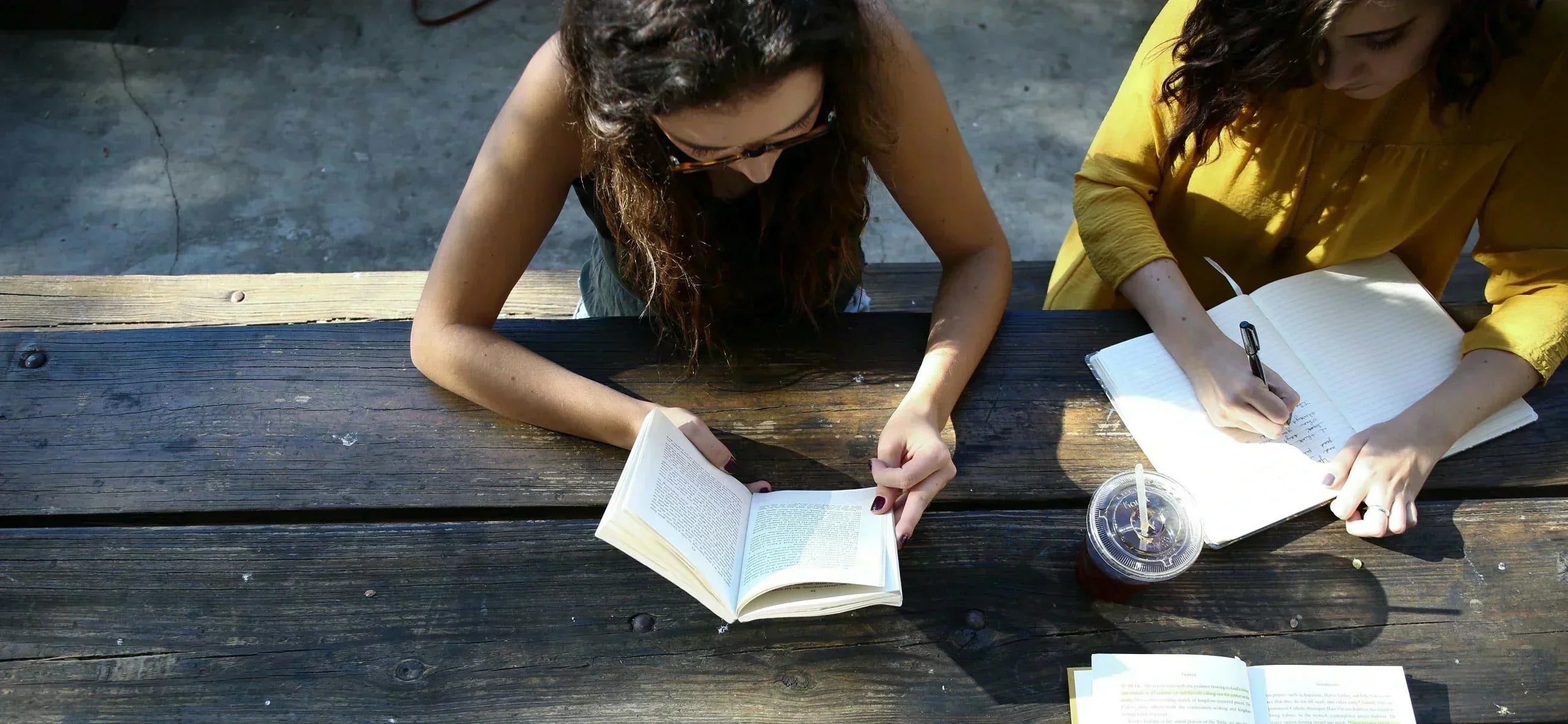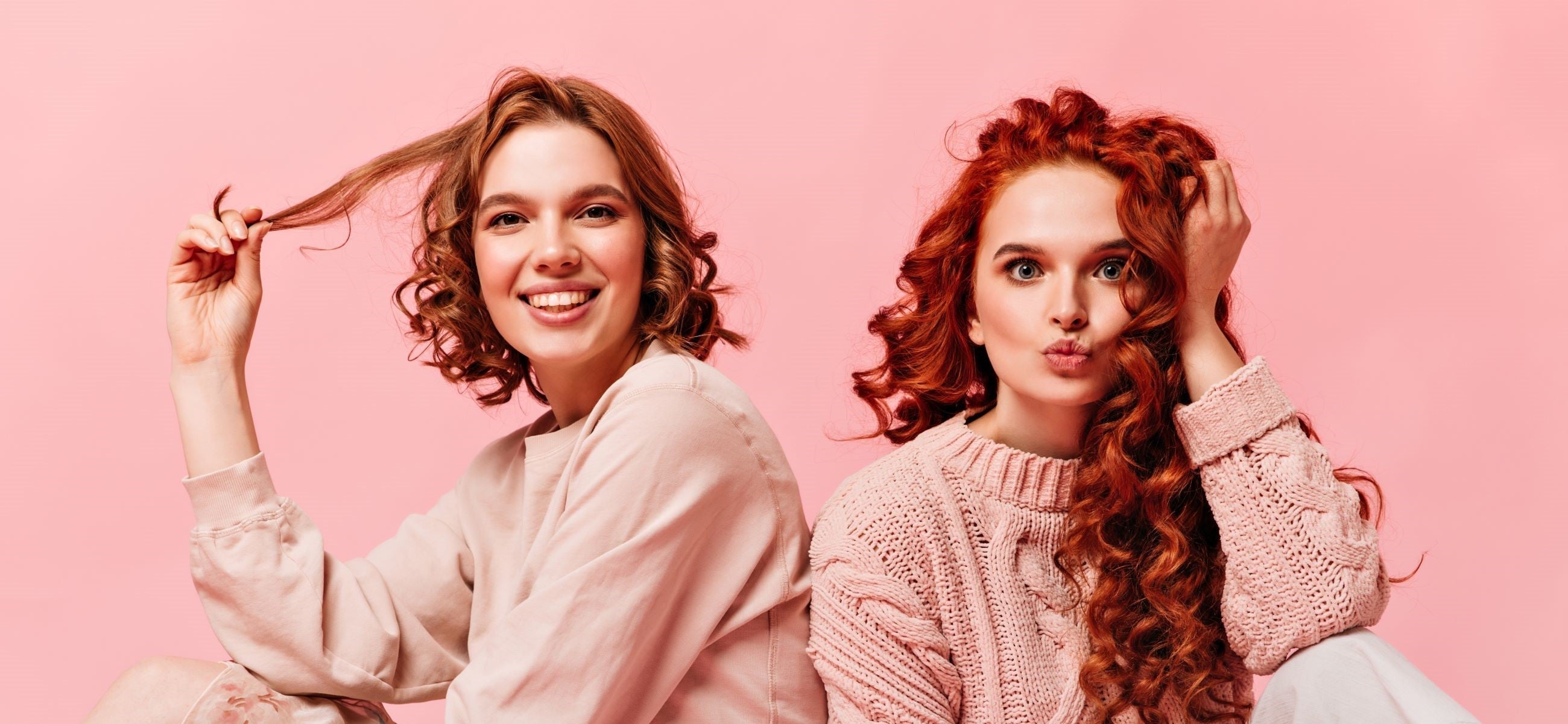
In this article
When it comes to creating an effective hair care routine, catering to your hair type is key. Each one has unique needs, especially thin hair. These strands are more delicate than their thick counterparts and require special care.
If you’re tired of dealing with limp, frizzy, or damaged thin hair, this guide is for you. Below we’ll be explaining how to choose the best hair dryer for thin hair while sharing tips and best practices for maintaining hair health, boosting volume, and adding shine.
Thin Hair vs Fine Hair: What’s The Difference?
Before we get into hair dryers, it’s important to understand exactly what thin hair is. The terms thin and fine hair are often used interchangeably, but there is a difference between the two.
- Fine hair refers to the diameter of each strand; those with fine hair have a narrow strand diameter that’s typically around 0.05mm, compared to 0.07mm for those with medium hair, or 0.10mm for those with thick hair
- Thin hair refers to the density of hair strands on the head; one can have high-density fine hair that won’t appear thin, or a lower density of thick/coarse strands that put them in the thin category
Genetics largely determine your hair type and density, but hair can start to thin due to factors like hormonal changes, stress, menopause, and aging.
Hair that is both thin and fine has a delicate structure that can be challenging to support. It’s often more susceptible to damage and breakage, be it mechanical damage from brushing and styling or heat damage. Some of the biggest challenges those with thin and fine hair face are:
- Greater susceptibility to damage, breakage, frizz, and static due to delicate texture
- Lack of volume
- Can easily be weighed down by product
- Limpness from heat exposure
- Hair getting oily/greasy faster, as natural scalp oils settle on thin strands faster
On the upside, fine and thin hair is naturally smooth, shiny, and generally easy to manage. Once you find the tools and products that work for your locks, you’ll be able to unleash its most beautiful attributes.
Are Hair Dryers Bad For Thin Hair?
You might be wary of hair dryers if your hair is thin and delicate.
We’ve learned that thin hair is more vulnerable to heat damage than medium or thick hair. Using a hair dryer on high heat can lead to undesirable results, like limpness, frizz, and general damage.
However, that doesn’t mean that those with thin hair should swear off hair dryers entirely. The right models and settings can be safe and even beneficial for thin hair. You’ll just need to know how to use one properly.
What To Know When Using A Hair Dryer On Thin Hair

Avoid high temperatures and always apply heat protectant before blow drying; stick to low to medium heat settings to prevent damage and excessive drying (this can deplete the hair’s natural moisture levels and create a limp appearance).
- Ionic technology helps to distribute heat more evenly and can reduce frizz
- A diffuser attachment helps to add volume, offers more even heat distribution and creates a blow dry experience that’s gentler as a whole
- Consider combination drying (part air drying, part blow drying) so hair doesn’t over-dry – depending on your hair’s texture, the ratio could be 50/50 or even 75/25
- Work in sections to allow for more even heat distribution and better styling control
- Add volume by lifting hair strands while drying
- Hold hair dryer about 15-20 cm away from scalp and strands to create a safe barrier from heat
- End with a cool blast to seal the hair cuticle and boost shine
- Finish styling with products that offer lightweight hydration and volume, like a volumizing mousse – avoid heavy products like pomades, oils, waxes, and protein treatments that can weigh your hair down
Best Affordable Hair Dryer For Thin Hair
Technique is important, but the best way to ensure you’re safely blow drying your thin hair is choosing the right hair dryer. There are lots of models on the market that can cater to the unique needs of thin hair, but we recommend Laifen’s high speed hair dryers for effectiveness, convenience, and affordability.

All models are crafted with ionic technology, which is especially beneficial for frizz-prone thin hair. It works by emitting millions of negative ions to neutralise static electricity and quickly wick away moisture from strands, resulting in soft, silky, shiny hair. The rapid brushless motors work to dry hair in mere minutes – on average, Laifen hair dryers are three times faster than conventional hair dryers, so you won’t have to worry about excessive exposure to anything harmful.
They’re also equipped with an innovative temperature cycling mode and thermo control technology, ensuring strands never get too much heat exposure. Let the hair dryer do the hard work for you, or monitor your temperature manually by simply sticking to the low and medium temperature settings. If you’re seeking hair dryers for thin hair without heat damage, Laifen is absolutely the brand to choose.
With an average service life of 9 years, Laifen hair dryers have an exceptional cost-per-use ratio. They’re a high quality choice that’s friendly towards your hair and your wallet!
Top Hair Dryer Picks For Thin Hair
- For everyday use: Laifen SE Lite
- For travel: Laifen Mini
- For advanced styling: Laifen Swift Special
- With a diffuser: Laifen SE

Conclusion – The Best Hair Dryer For Thin Hair
It may seem like hair dryers and thin hair aren’t the best combination, as thin strands are more delicate and susceptible to heat damage. However, as long as you’re choosing a high quality hair dryer with the right features and settings – like ionic technology and low temperatures – your thin hair just might end up looking better than ever. Consider a powerful Laifen ionic hair dryer with thermo control settings and rapid brushless motors. Your thin, fine hair will thank you!


